Home » Blog » IP Monetization
How IPXO Enables Revenue for Businesses
As IPv4 addresses gain a commodity status and the demand for this resource grows, businesses uncover a new revenue stream.

IP addresses make the virtual world go round. They help identify our devices and make it possible to connect to one another on the global computer network. Unsurprisingly, as we discuss IP address revenue, it is evident that this resource offers interesting opportunities for businesses.
It’s a fact that we are running out of some of our IP addresses at an inordinate speed. While we will not deplete IPv6 addresses any time soon – if ever – we have already exhausted IPv4 addresses. What’s the difference between IPv4 and IPv6? There are 340 undecillion IPv6 addresses but only 4.29 billion IPv4 addresses.
Although IPv6 is meant to replace IPv4, the infrastructure is not yet ready for the switch. In addition, we have found ways to cope with the exhaustion of Internet Protocol version 4 addresses. For example, thanks to Network Address Translation (NAT), we can consolidate IP addresses, which means we need fewer of them.
All in all, more and more IPv4 addresses are in demand, and with IPv4 supporting the internet, we cannot function without this resource yet. Surprisingly, some 800 million IPv4 addresses remain unused, meaning business opportunities are hiding in plain sight.
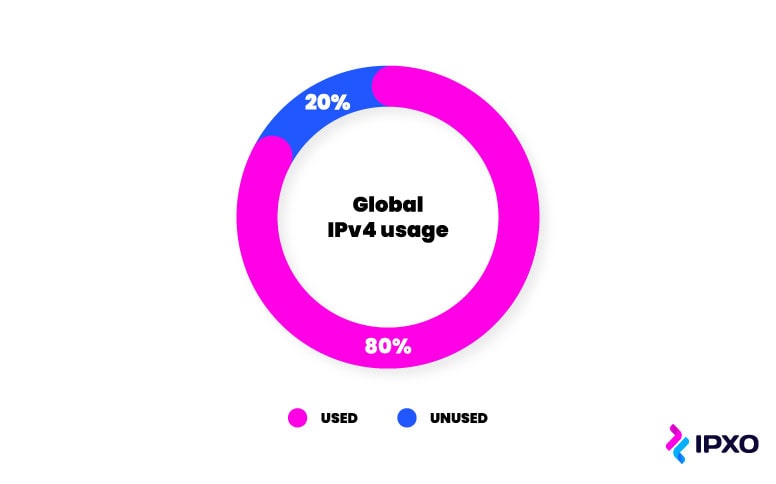
IPv4 addresses: a clear-cut business opportunity
The IPv4 address shortage has loomed upon us for decades now. Of course, when the Internet Protocol version 4 emerged in the 1980s, no one thought that we could run out of 4.29 billion addresses. However, with the internet explosion in the 1990s, it became evident that we would need a replacement soon. IPv6 emerged in 1995, but this version hasn’t replaced IPv4 yet.
The bottom line is we’re dependent on IPv4, and we’re likely to remain dependent on this version of the Internet Protocol for decades to come. This has led to IPv4 becoming a commodity. It is now comparable to gold, stocks and even cryptocurrency. Undeniably, as the demand for IPv4 addresses increases, the prices of a once free resource are climbing as well.
While IANA (Internet Assigned Numbers Authority), in theory, is the owner of all IP resources, it officially distributed the last free IP addresses back in 2011. A decade ago. Since then, a secondary market has surfaced, in which buying and selling IP addresses is the new norm.
Four Regional Internet Registries (RIRs) have also started facilitating inter-RIR transfers. While APNIC, ARIN, LACNIC and RIPE NCC RIRs freely transfer resources among themselves, AFRINIC doesn’t participate in this exchange.
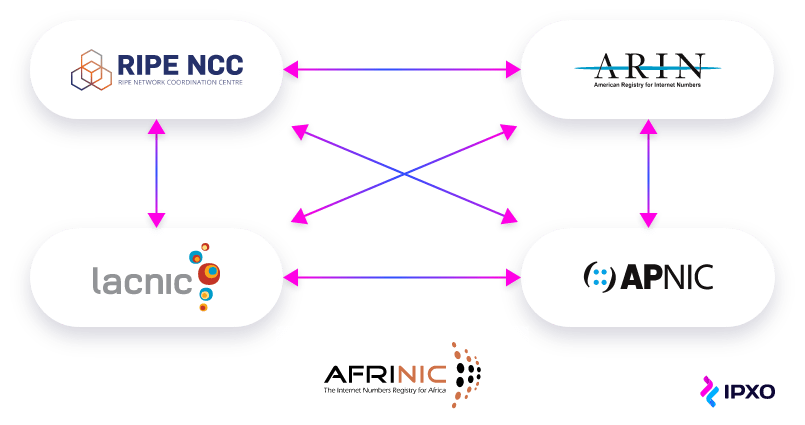
IPv4 brokers
Ultimately, we all need IPv4 addresses to connect via the internet. Therefore, it is not surprising that the secondary market is booming. In fact, it’s no longer a new market. Microsoft has been buying IPv4 resources for at least a decade now. In 2011, for example, it purchased 666,624 IPv4 addresses from Nortel for 7.5 million USD using the services of an IPv4 broker.
Numerous IP brokerages exist these days, and they assist both buyers and sellers of IPv4 resources. When it comes to selling IPs, brokers are responsible for finding prospective buyers and striking the best deals to make the most money for the IP holders. Those looking to buy IPs use brokers’ services to find reputable and usable resources at reasonable prices.
Unfortunately, many IP addresses that are re-distributed have a poor reputation and plague IP blocklists. Brokers assist buyers in finding IPv4 resources that are clean. However, they are unlikely to help with delisting IPs from blocklists.
IPv4 lease market
With IPv4 prices continuously going up, some IP holders are waiting for the best time to sell unused resources. At the same time, some small to mid-size companies are unable to invest in scarce and expensive IP addresses. Luckily, selling and buying IPs are no longer the only options. Leasing IPv4 is the new big thing.
How has the IPv4 market changed?
IANA allocated all 4.29 billion IPv4 addresses for free. The RIRs responsible for distributing the resources in their service regions did not charge for IP addresses either.
In the 1980s, when IPv4 emerged, anyone with a legitimate reason to own IP addresses could easily request and obtain the resources. However, as we started running out of IPs, and especially after IANA allocated the last unused IP addresses, RIRs started implementing much stricter protocols.

Today, RIRs only allocate small blocks of IPv4 addresses. These are usually /24, /23 and, in some cases, /22 blocks that consist of 256, 512 and 1,024 IPs, respectively. RIRs also allocate resources more responsibly. For example, ARIN allocates IPs to critical infrastructure providers only, and LACNIC allocates IPs to members who have not received them yet.
Although RIRs no longer have unused IPs they can give away carelessly, plenty of IP holders are willing to sell and lease their resources. All in all, these resources are no longer free, which might be the biggest change in the market itself.
IPv4 prices keep climbing
IPv4 prices continue to increase, and they have been accelerating more and more each year. While the average price per IPv4 address was around $15 in 2017, it went up to $20 in 2018 and 2019. In 2020, buyers were spending $25 per IP address on average. As you can see, the prices grew, but they grew in a predictable progression.
In 2021, IPv4 sale prices shot up to around $44-50 per IP. A significant increase compared to the previous years. What has influenced that? In short – the increasing demand. The explosion of IoT plays a huge role in this. As more and more people get connected to the internet and buy internet-connected devices, IPv4 addresses are becoming a desired commodity simply due to shortage and high demand.
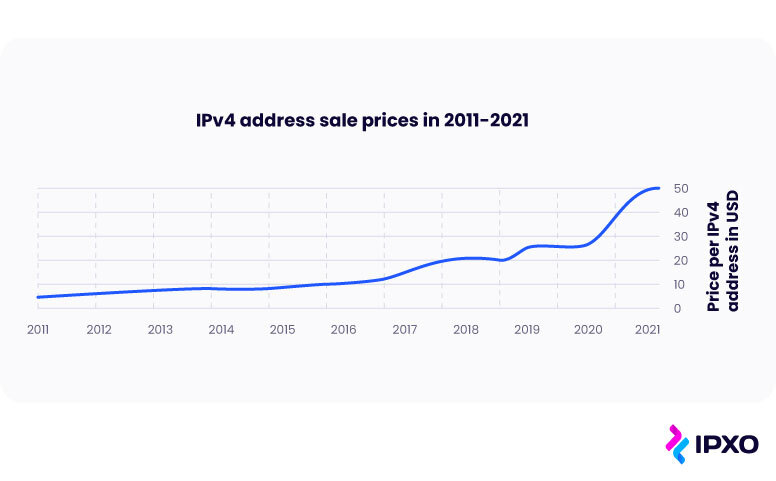
IPv4 lease prices have also been accelerating, and it is clear why. First of all, lease prices reflect the IP sale market, and if sale prices are going up, lease prices go up too. Second, IPv4 leasing has become more popular. Not only among those who may be unable to buy the resources they need but also those who have unused IPs that can be monetized.
Selling IPv4 vs. buying IPv4: which is better for business?
According to our data, IPv4 lease prices range from $0.37 to 0.90 per IP (per month), depending on the address block. This is not a costly option, even if you need a larger IP block.
Of course, a /16 block consisting of 65,536 IPs would cost around $38,000 per month at the average price of $0.59 per IP. However, not all companies need this volume of IP addresses. The /24 block is one of the more popular in the lease market. There are 254 usable IP addresses in this block that goes for around $200 per month, and that is plenty for many small to mid-size businesses.
What about IP holders? Is it better to sell the assets you’re not using? Perhaps, you should keep them safe until you are ready to sell? Maybe leasing is the right move? If you want to base your decision on numbers, use our free Leasing vs. Selling Calculator. The tool shows how you can make more money by leasing IPv4 addresses for a single year than by selling once.
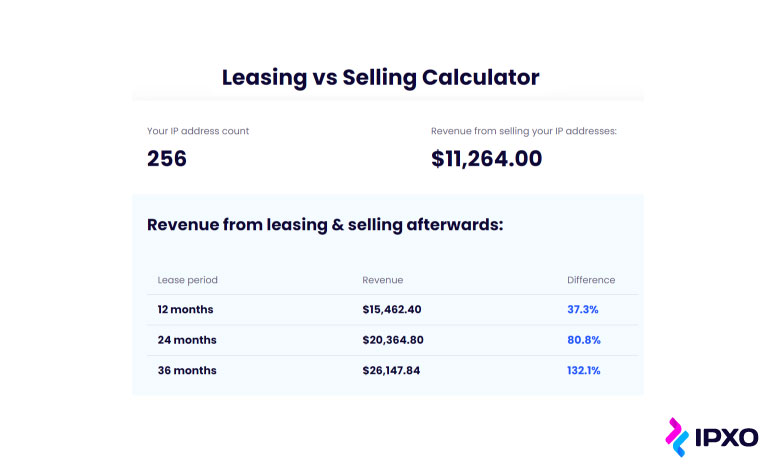
In a recent webinar hosted by IPXO, Dan Handy, working at the Ace Data Centers and Alex Latzko, the Principal Network Architect at Deft, shared their experiences with leasing IPv4 addresses via the IPXO Marketplace.
What does the IPXO Marketplace offer?
The IPXO Marketplace is the first fully automated IP address lease and monetization platform. In 2020, the service was developed as the IP Address Market under the Heficed brand. In August 2021, the Marketplace emerged as a standalone service under the IPXO brand.
The IP monetization service offered by the IPXO Marketplace enables IP holders to import their resources, set their own prices and lease IPv4 addresses to reputable parties.
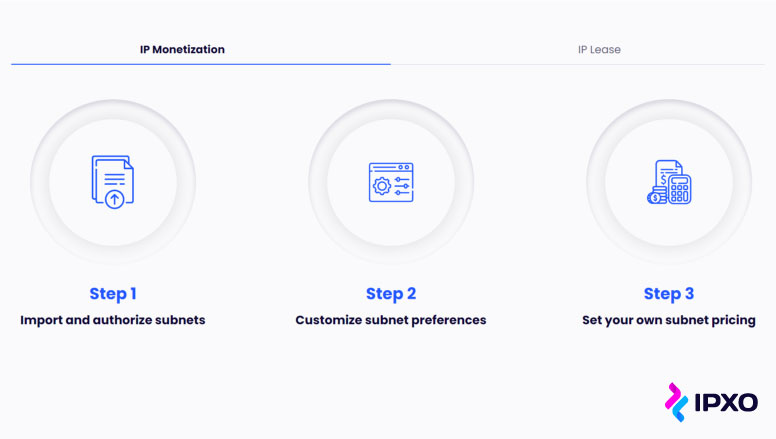
The IP lease service enables those looking for clean and reputable IPv4 resources to filter subnets by CIDR (Classless Inter-Domain Routing), pay for the resources they need in just a few clicks and also assign IPs to any network.
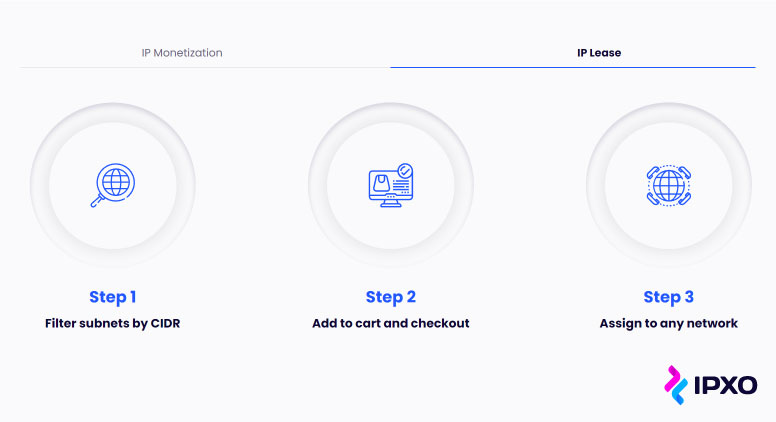
IPXO features
The IPXO Marketplace offers a suite of amazing services that can help both lessors and lessees get exactly what they need, without a fuss. These services include:
- Full automation
- IPAM (IP address management)
- IP reputation management
- Abuse management
- DNS management
- Delegated RPKI (coming soon)
- IP geolocation (coming soon)
The IPXO Marketplace offers fully automated services, and clients can start monetizing or leasing pretty much as soon as they create their accounts, validate resource ownership and meet compliance requirements.
All payouts are automated, which means that earnings are transferred automatically at the chosen payout cycle. Conveniently, a standard 5% platform fee for IP holders is deducted monthly only once the subnets are monetized.
IPXO takes IP reputation extremely seriously. Disreputable IPs that exist in IP blocklists cannot be added to the platform, which ensures that clients only monetize and lease clean IPv4 addresses. Once IPs are in the marketplace, we continue monitoring them to ensure a stable IP reputation and to maintain the value of the resources.
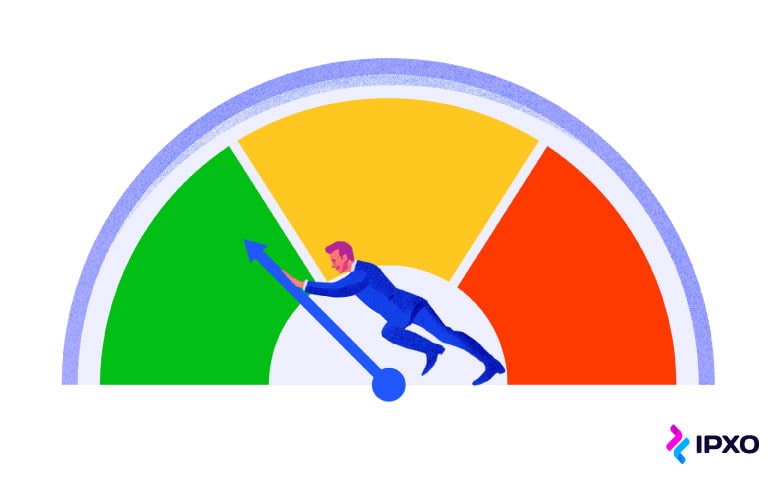
Managing IP resources is extremely easy with IPXO’s IPAM dashboard. This ensures that all clients have full control. Even more control will come soon once delegated RPKI and IP geolocation services become available. To learn more, we invite you to watch the recording of a webinar introducing the IPXO platform.
How does IPXO handle abuse?
Experienced anti-abuse professionals employ automated abuse reporting and real-time monitoring to catch and mitigate abuse incidents in time. Our team also works hard to make sure that all clients are audited before they can access the Marketplace to ensure security for everyone on the platform.
Whenever IP holders add their subnets to the Marketplace, we perform a thorough background check on IP addresses. With the help of almost 200 different blocklists, anti-abuse experts can make sure that only clean IP addresses are listed on the IPXO Marketplace. Even if a single IP address fails the check, the entire subnet cannot be added until it is clean.
Once the subnets are in the Marketplace, IPXO takes the responsibility to ensure that the IP addresses are utilized safely. A major undertaking for the anti-abuse team. Besides inventory control and screening, additional procedures include:
- Business verification
- KYC (Know Your Customer)
- ASN blocklist maintenance
At IPXO, every new business is verified manually so that only legal business entities monetize and lease IP addresses via the Marketplace. Businesses also need to fill out the declaration of usage form, which is one of the steps in the KYC process. This allows collecting data on the client’s GDPR compliance, mailing activities, the size of the company, etc. This enables to block unreliable parties from joining the Marketplace.
IPXO also maintains a blocklist of malicious autonomous system numbers, or ASNs. This list combines the unique database created by IPXO and Spamhaus’ ASN blocklist. Paulius Judickas, the Head of Sales at IPXO, explains the importance of ASN blocklisting:
You can learn more about IP address abuse observability at IPXO and how businesses can unlock new revenue streams using the Marketplace by watching our recent webinar.
IPXO partnership opportunities
Right from the get-go, IPXO’s vision was to build a secure and open internet that guarantees equal opportunities for all. Undoubtedly, the more idle IP resources are put to use, the more sustainable the internet becomes. Internet sustainability is crucial for creating an ecosystem that can support businesses around the world and, hopefully, slow down the depletion of IPv4 addresses.
While IPXO introduces an easy and sure way to monetize IP resources, businesses have more opportunities to unlock new revenue streams. IPXO supports over 75 industries and offers several different Partnership Programs, including:
- Ecosystem partnership
- Referral partnership
- Integration partnership
IPXO’s Ecosystem partners can benefit from access to thousands of clients and use that to increase brand visibility. Referral partners can earn money just by referring their valued customers to the unique IPXO Marketplace.
Integration partners will soon have the opportunity to significantly expand their toolsets by bringing IP management directly to their customers. You can fill a partnership form on our Partners page to contact our Sales team and get more information.
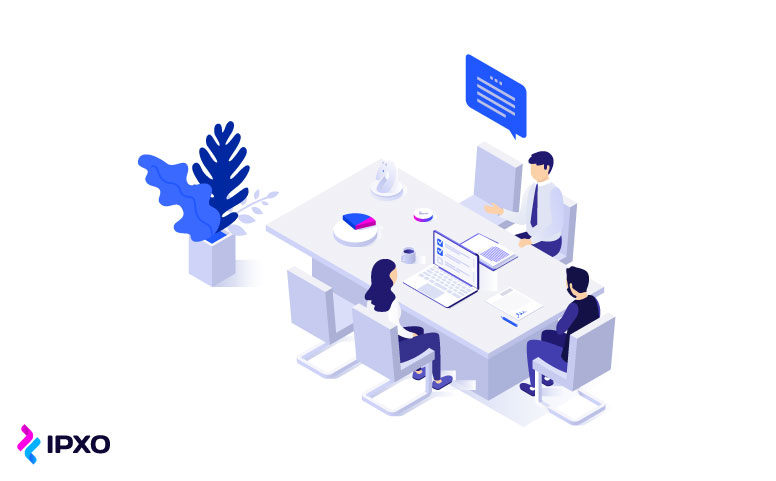
Scale and unlock a stable revenue stream using IPv4 addresses
IP addresses help build and scale businesses. Unfortunately, at this time, there aren’t enough IPv4 addresses to support everyone. This is, in part, due to IP holders keeping their resources unused. In fact, nearly 20% (around 800 million) of all IPv4 addresses are not serving anyone.
This is great news! That means that new businesses are not locked in and can continue to scale as long as we can put the unused IPs back into the market. This is easy to do using the IPXO’s Marketplace, a platform designed to help monetize and lease clean IP addresses in a safe, transparent and automated way.
Monetizing IPs is a great alternative to selling. While some IP holders choose to sell their resources, this is not always the best option. First and foremost, monetizing IPv4 addresses is more profitable in the long run. Second, with IPv4 sale and lease prices steadily going up every year, selling now might not be the best use of the resources. Finally, if a business is thinking about selling IPs in the future, leasing can offer a steady revenue stream until the final sale.
For businesses that need IPs, leasing offers an opportunity to scale without huge investments. Buying IP addresses requires a lot of money upfront. On the other hand, IPv4 leasing providers offer an opportunity to scale at low upfront costs.
To sum up, IP leasing helps build a sustainable internet that supports businesses of all sizes in dozens of unique industries. The doors are open.
About the author
Table of contents
IPv4 addresses: a clear-cut business opportunity
IPv4 brokers
IPv4 lease market
How has the IPv4 market changed?
IPv4 prices keep climbing
Selling IPv4 vs. buying IPv4: which is better for business?
What does the IPXO Marketplace offer?
IPXO features
How does IPXO handle abuse?
IPXO partnership opportunities
Scale and unlock a stable revenue stream using IPv4 addresses
Related reading
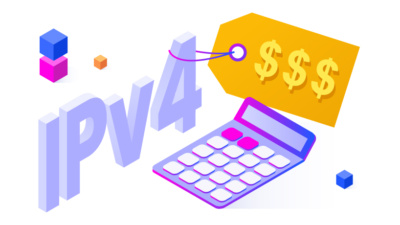
IPv4 Monetization: How To Determine the IPv4 Subnet Price on the Marketplace
Whether you have already started monetizing your unused IPs on the IPXO Marketplace or you are still trying to figure out what IP prices you should set, there are…
Read more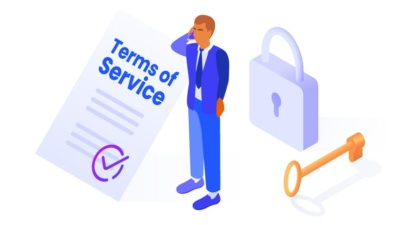
The Role of IPv4 Broker in the IP Address Market Explained
What is an IP address broker? What is their role in selling and buying IPs? How can you acquire IP resources quicker and cheaper without IP brokers? Continue reading…
Read more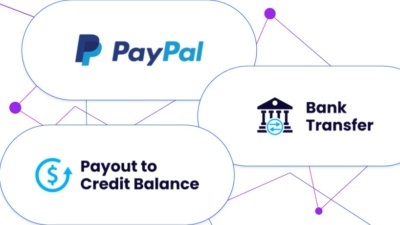
IPXO Platform Payouts Explained
What are IPXO payouts? How do they work? How to set them up? Here are the answers to all of these essential questions.
Read moreSubscribe to the IPXO email and don’t miss any news!
